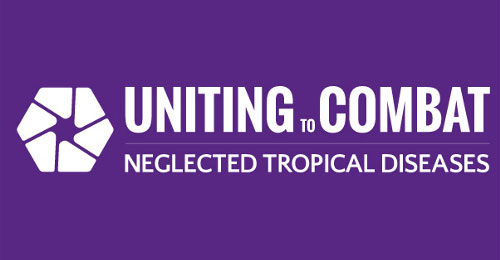By Aminu Magashi Garba
At a Geneva 5 day summit that kick started on the 19th April 2017, Governments and private donors had pledge US$812 million. The new pledge was in line with the collective efforts to control and eliminate neglected tropical diseases (NTDs). The summit coincided with the launch of the World Health Organization’s (WHO) Fourth Report on NTDs, showing transformational progress against these debilitating diseases, and a commitment by the United Kingdom to more than double its funding for NTDs.
According to the press statement shared and obtained by Health Reporters, the meeting comes five years after the launch of the London Declaration on NTDs, a commitment by the public and private sectors to achieve the WHO goals for control, elimination and eradication of 10 NTDs. In that time, billions of treatments have been donated by pharmaceutical companies and delivered to impoverished communities in nearly 150 countries, reaching nearly a billion people in 2015.
The statement revealed that NTDs are some of the oldest and most painful diseases, afflicting the world’s poorest communities. One in six people suffer from NTDs worldwide, including more than half a billion children. NTDs disable, debilitate and perpetuate cycles of poverty, keeping children out of school, parents out of work, and dampening hope of any chance of an economic future.
A new report released during the summit titled Integrating Neglected Tropical Diseases in Global Health and Development by the WHO revealed that more people are being reached with needed NTD interventions than ever before. In 2015, nearly a billion people received treatments donated by pharmaceutical companies for at least one NTD, representing a 36 percent increase since 2011, the year before the launch of the London Declaration. As more districts, countries and regions eliminate NTDs, the number of people requiring treatments has decreased from 2 billion in 2010 to 1.6 billion in 2015.
“WHO has observed record-breaking progress towards bringing ancient scourges like sleeping sickness and elephantiasis to their knees,” says WHO Director-General, Dr. Margaret Chan. “Over the past 10 years, millions of people have been rescued from disability and poverty, thanks to one of the most effective global partnerships in modern public health.”
Governments and other donors announced new commitments at the summit to expand the reach and impact of NTD programs around the world. The Bill & Melinda Gates Foundation committed $335 million in grants over the next four years to support a diverse group of NTD programs focused on drug development and delivery, disease surveillance and vector control. The commitment includes $42 million to support The Carter Center’s guinea worm eradication initiative, as well as dedicated funding to accelerate the elimination of African sleeping sickness.
“NTDs are some of the most painful, debilitating and stigmatizing diseases that affect the world’s poorest communities. That’s why we helped launch the London Declaration, a historic milestone that led to significant progress in treating and reducing the spread of NTDs and demonstrated the impact that the public sector, the private sector, communities and NGOs can have by working together,” said Bill Gates, co-chair of the Bill & Melinda Gates Foundation.
The Belgian government also pledged an additional $27 million, spread equally over the next nine years, toward the elimination of sleeping sickness in the Democratic Republic of the Congo (DRC). This amount will be matched for the next three years by the Bill & Melinda Gates Foundation, establishing a platform for increased collaboration between Belgium, the DRC and the broader NTD partnership.
Progress against NTDs has been enabled by the large-scale donation of medicines by 10 pharmaceutical companies. In the five years since the London Declaration, companies have donated over 7 billion treatments that, with the support of partners, now reach nearly 1 billion people every year. These donations, worth an estimated $19 billion from 2012 through 2020, greatly multiply the impact of donor investments; USAID estimates that each dollar invested in delivery leverages $26 worth of donated drugs.
“The London Declaration is a powerful example of the impact of successful partnerships,” said Haruo Naito, CEO of Eisai and an original signatory of the London Declaration. “By leveraging our resources and focusing on a common goal, we are already making unprecedented progress towards eliminating these horrific diseases. The work we are doing today is a long-term investment into a healthier and more prosperous future.”
Although nearly a billion people received NTD treatments in 2015, more funding is needed to ensure that NTD programs reach all people and communities affected by the diseases. WHO estimates that 340 million people in Sub-Saharan Africa could be covered by new investments of $150 million per year through the year 2020.
Strong leadership from affected countries is vital to sustaining progress against NTDs, particularly in the face of shifting economic climates and competing health priorities. Despite these challenges, some countries are increasing financing for NTD programs and integrating them into national health systems. Among other countries, Ethiopia has made significant strides in fighting trachoma by including progress against the disease as a target in its national health plan, providing significant domestic funding, participating in the Global Trachoma Mapping Project and training surgeons to conduct eye-lid surgeries to correct the effects of trachoma.
“Ethiopia is fully committed to realizing ambitious, yet achievable, elimination targets for trachoma and other NTDs with proactive program coordination,” said H.E Professor Yifru Berhan Mitke, Ethiopian Minister of Health. “An increased direct program financial contribution by the government to NTDs, as high as 3 million USD by 2016, is a big step forward in alleviating the burden and stigma of these diseases.”
About Uniting to Combat Neglected Tropical Diseases: Established in 2012, Uniting to Combat NTDs is a group of organizations committed to achieving the WHO’s 2020 goal to control and eliminate 10 NTDs as laid out in in the London Declaration. By working together, Uniting to Combat NTDs aims to chart a new course toward health and sustainability among the world’s poorest communities.
The 10 diseases covered by the London Declaration include onchocerciasis (river blindness), Guinea worm disease, lymphatic filariasis (elephantiasis), blinding trachoma, schistosomiasis, soil-transmitted helminths, leprosy, Chagas disease, visceral leishmaniasis and human African trypanosomiasis (sleeping sickness). To find out more about the work of Uniting to Combat NTDs and to learn more about NTDs, please visit our website.
About the London Declaration on Neglected Tropical Diseases: The London Declaration on NTDs, launched on 30 January 2012, is a joint commitment to control, eliminate or eradicate NTDs, signed by WHO, 13 pharmaceutical companies, donor and endemic country governments, the Bill & Melinda Gates Foundation and the World Bank.




